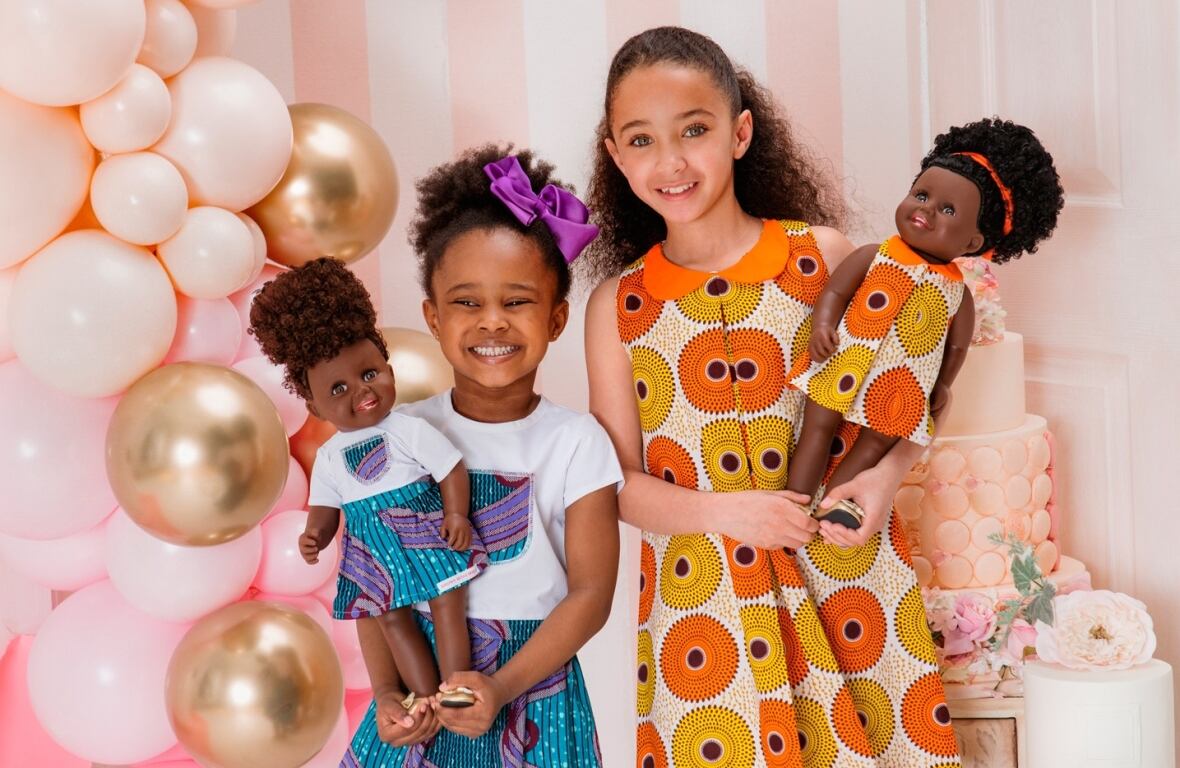Creator of Brown Divas Dolls wants to foster self-esteem in young children
'We want children to be in contact with diversity, and to respect it,' said founder Clara D. Lewis

It's been a long time since Clara D. Lewis played with dolls, but it's now, as an adult, that she has the toy of her dreams.
"So this is Klara… with a 'K'," she said, straightening the doll's dress.
Lewis's curly-haired, smiling namesake is a Brown Divas Doll, part of the family business she founded a year and a half ago after finding that high-quality black dolls are still hard to come by.
It's a situation that Lewis says isn't much different than when she was growing up.
"We were four girls at home, and we had dolls too. All of the dolls were Caucasian. Blonde hair, blue eyes," said Lewis.
"I remember my older sister had a black doll, with a bald head, and it wasn't cute at all. So that's what I remember about black dolls."
Self-esteem through play
Through Brown Divas Dolls, the Blainville-based entrepreneur hopes to help young black children foster a positive self-image by providing them with dolls that come in a variety of skin tones, hair lengths, and hair textures, from looser curls to tighter ones.
"We have children with dark skin and lighter skin, because sometimes ... it's children with lighter skin who don't feel accepted by the other kids," said Lewis.
So far, Lewis's dolls are mostly sold online. She has received orders from across Canada, the United States, France, and other countries across Europe. White and black parents are buying them, and often report back with touching stories about children and their dolls.
"This little girl came [to her mother] before sleeping, and she was sleeping with one of the Divas. She said, 'You know mama, now I'm not alone, with short hair. And when I'm older, I'm going to be cute like my Diva.'"

Spreading a message of choice
The message of self-acceptance behind Lewis's company is inspired by her own life.
Lewis said the idea of a Caucasian beauty standard was already present in her mind, at a young age. She began straightening her hair when she was nine in hopes of fitting in at school.
"It made me feel that I was like the white girls at my school. We wanted to be like them, because we thought that was the image of beauty," Lewis said.
In 2013, Lewis began letting her natural hair grow out. Although she respects each individual's choice to straighten their hair or not, Lewis says she wants children to know they have a choice, and keeping their natural hair texture is OK.
"How can I help young kids, this generation, not go through what I had to go through? To appreciate their curly hair, to appreciate their Afro hair, to appreciate their differences?"
Going beyond the toy store
Lewis's next step is to get Brown Divas Dolls on store shelves, but her ambitions don't stop there.
Lewis is a social worker, and thinks Brown Divas Dolls have the potential to be used in daycares and classrooms to encourage children to have conversations about diversity.
"Sometimes, it's just curiosity. Kids can ask their instructor, "Why is her hair so black? Why is it so curly?"
"Sometimes, the question [seems] rude, but not because they want to be rude. It's just because they're curious, or they don't know. So this can give them a place to ask that kind of question, and be educated," she said.